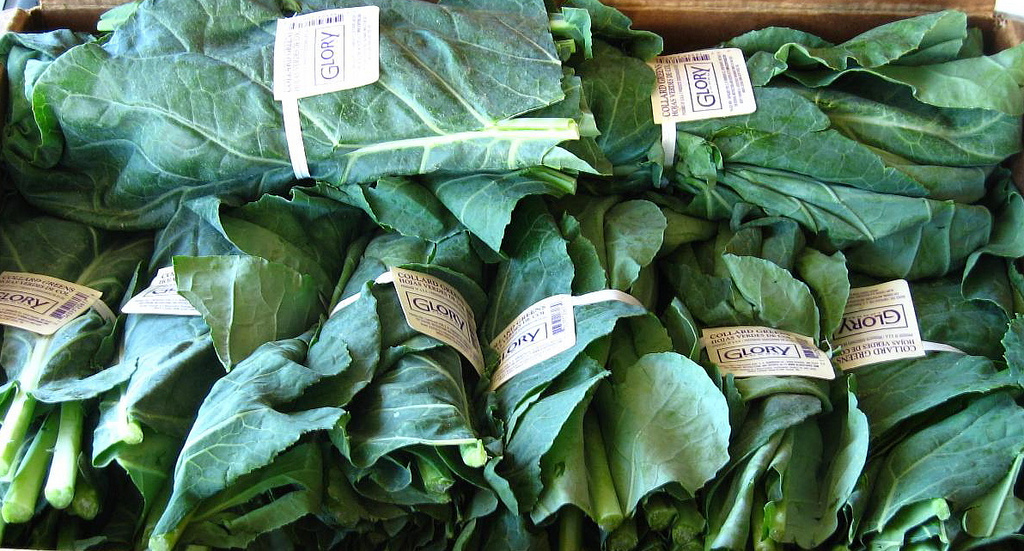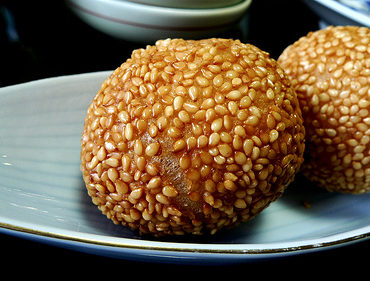
An elected official who, to this day, won’t travel by car without taking her own food. A just-hired factory worker who had to learn to drink coffee to keep up with the industrial pace of her new job. A mother who trekked to slaughterhouses for “haslets” to cook her family the Southern meals on which she’d been raised. The Krueger-Scott African-American Oral History Collection presents an intimate and revealing look at the way food and migration intertwined in the lives of scores of Newark residents, many of whom arrived in New Jersey having migrated from the segregated South.
The collection contains over 200 audio cassette recordings of interviews with more than 100 residents of Newark, New Jersey who lived in or migrated to the city between 1910 and 1970, with particular emphasis on the post-World War II era. These interviews were conducted between 1995 and 2000 under the auspices of the now-defunct Krueger-Scott Cultural Center, helmed by Executive Director Catherine J. Lenix-Hooker. The oral history initiative, originally entitled “The Lost Years Recovered: Oral Histories of African Americans in Newark, New Jersey from 1910-1970, A Continuum,” sought to document the history of African-American migration to, and life in, Newark during a time for which primary sources of these phenomena are scant. Giles R. Wright Jr., scholar of African-American History and author of Afro-Americans in New Jersey: A Short History (New Jersey Historical Commission, 1989) was retained by the Center to train volunteers from the community to interview their peers. This resulted in a rich portrait of the evolution of African-American history and life in the city over several decades of immense change.
Especially evocative are the narrators’ food-based memories. What, where and when one did or could eat comes to stand in for a variety of themes, from the injustices of segregation to the shared experience (both actual and symbolic) of the African-American diaspora. As the interviewees share their memories of life in the South and travel to the North, many striking similarities in their stories emerge, along with telling differences.
Numerous respondents described the rigors of segregated train travel by discussing the meticulous meal preparation African-American travelers would have to undertake to navigate a country in which basic services were denied them. In particular, black travelers would have to take their own food with them as they were barred from purchasing food in large swaths of the country. Asked to detail the provisions packed for their journeys, interviewees frequently mentioned shoeboxes of fried chicken, sandwiches, oranges, and baked goods. So prevalent was this image in the popular imagination that one narrator recalled how, “the papers said that we were migrating from Florida in great numbers with fish boxes and chicken bags.”
African-American migrants not originally from the South also related stories of visiting extended family and having to take food with them for the trip. The aforementioned elected official, originally from Detroit, remembered her mother packing her chicken and oranges and jugs of water for train trips to see Southern relatives, knowing that south of Cincinnati she would have to move to the back of the train. These childhood memories became so ingrained, she told her interviewer, that even as an adult in a desegregated country, she always carries food with her when she travels by car.
What the migrants found when they reached Newark is also vividly related in the stories they tell about what and where they did (or didn’t) eat there. One narrator from the South had her expectations of less oppressive racial attitudes in the North rudely confounded when she and her husband were refused service in a downtown Newark restaurant. Another respondent talked about having to adjust to the Northern climate—both the colder weather and the more regimented, industrial timetable of factory work. She was, she explained, “cold” by mid-day on her shift and had to be taught to eat breakfast by co-workers who instructed her to buy bacon, eggs and grits and learn to drink coffee to keep her stamina up. A third interviewee described having to go to the slaughterhouses on South Street to find the “haslets” (organ meats) and chicken necks required to make for her family the meals on which she had grown up in Florida. Yet another confessed that she had never had collard greens until she moved to Newark, despite her southern roots. In her part of the South, she explained, they only ate mustard and turnip greens.
Such soul food is frequently referenced as a touchstone of a common, shared experience as African-Americans. So is, in many interviews, the tradition of eating non-food consumables, such as starch and clay dirt. Narrators from a variety of social and economic backgrounds share stories of knowing female relatives from the South who regularly ate starch and one respondent related her own experiences eating starch when pregnant with her children. While consumption of starch is almost always described as being a women-only activity, the eating of clay dirt as children is an activity related in interviews by both men and women. One gentleman reported that as a child he and his siblings ate clay and called it “sour dirt.” Likewise, a female interviewer pauses while questioning a narrator to relate how she and her siblings would dig the clay dirt from around their chimney and enjoy its smoky flavor.
For the oral history project, a ten page interview questionnaire was developed by Wright, project consultant Dr. Clement A. Price (Rutgers University) and the citizen volunteers, encompassing a wide variety of topics. Questions were divided into eight main categories: Personal Information, Family Background, Migration to Newark, Settlement in Newark, Work, Institutional Activities, Community Life, and recollections of Louise Scott and the Krueger-Scott Mansion (an historic home in Newark for for which the Krueger-Scott Cultural Center was named). Migration to Newark, primarily from the Southern United States, is at the heart of the interviews, with questions posed comparing and contrasting narrators’ experiences not only with foodways and eating but also kinship networks, celebrations and holidays, employment opportunities, community relations with authority figures and racial dynamics, and how these manifested in different regions of the country. The project also examines civic life in Newark, through questions regarding political and social activism, neighborhood interactions and education.
The responses to these questions yield hundreds of hours of fascinating conversations, insightful observations and revealing anecdotes that give a human voice to a critical chapter in American social history. (See the transcripts that follow.) African-Americans migrated to Newark in droves seeking economic opportunities and living conditions from which they were barred in the South. The promise Newark held for these brave migrants is summed up perfectly by one narrator who uses the language of food to succinctly express the personal way in which moving North changed her life. “In the South,” she explains, “we only ate greens in season. In Newark, we had them all year long.”
Mildred Crump, interviewed November 12, 1997, transcript excerpt courtesy of The Charles F. Cummings New Jersey Information Center, Newark Public Library.

Q: Where you came from?
Crump: The, as I said, we shopped at A&P. Very little transition in terms of food. Besides, both my husband and I liked to eat at, we lived to experiment with different kinds of food. So, you know, if there was something different, we would try it.
Q: Given the fact that most of the African-American people in Newark migrated from the south, did you find a difference in the kinds of food that were accustomed to in Detroit and…
END SIDE ONE, TAPE ONE; BEGIN SIDE TWO, TAPE ONE
Q: Okay, you were saying that part of the south that you came from, you ate what kinds of food?
Crump: We ate mustard and turnip greens. My husband coming from the part of the south where he came from, they ate collard greens. And so until I moved to the east coast, I had never had collard greens. We had mustard and turnip greens. In the midwest, we ate mullet fish. We ate a heavy fish. When I moved here, we had wandy and butter fish and, you know, those kinds of fishes. We had catfish. Both places had catfish. But there were some differences in terms of, just in terms of the types of foods. We were both, because we had southern roots, we were both firmly planted in southern cooking. And so that was not a problem with us.
Q: What we could [call] soul food that we…
Crump: Absolutely.
Q: …had in the south. Like as you said, collard greens, black eyed peas, sweet potatoes, corn bread.
Crump: Absolutely. Friday night we looked forward to my father’s cooking. My dad was a renaissance man. One the weekend, he took over the care of us children. He gave my mother a break. And my mother who could cook very well, but my dad could cook rings around her. Would start out Friday night. We always had greens, fish and grits. We knew that when we could eat hardy because everything was going to taste good. I brought my own children up the same way.
[…]Q: Did I ask you were you born in the south or were you born in Detroit?
Crump: Sometimes I feel as I was born in the south. I was actually born in Detroit. But I went south every summer of my life until I was seventeen years old. We would catch the train in Detroit with our shoebox with our friend chicken and our pound cake and our oranges and our jug of water because we knew once we hit Cincinnati, we’d have to go to the back of the train and would not be allowed to purchase food. And so my mother, you know, prepared us for that. And I cannot travel by car to this day without taking my own food.
Q: Who were you visiting in the south when you spent those summers there?
Crump: Oh my grandparents. And my aunts and uncles.
Q: Did you know anybody who ate such substances as clay dirt…
Crump: Oh sure.
Q: and starch?
Crump: Sure. My aunts, all of them. I used to eat starch. I wanted to see what it tasted like. We did all of those things. I wouldn’t trade those experiences for anything.
Q: Nor would I. I can remember when we used to dig holes in the chimney to get the clay dirt. That tasted so good.
Crump: Oh. Wasn’t that good?
Q: That smoky taste.
Crump: And when we think about it today, how did we do it. There was an expression they said that starch clogged your bowels and that if you ate enough, and I used to think, oh Lord, I’m sure my Aunt Laura, she ate a whole bunch of. About maybe a box of starch a day. Probably I’m exaggerating, but it was a lot.
Q: What about medical practices? How did the use of such as home remedies, patent medicines and midwives in Newark compare with the use of such in your southern experience?
Crump: Oh gee. My Aunt Carbelle was declared dead by the doctor. He said, I can’t do anything for her. She’s got the croup. And my grandmother came in, my Grandma Jodie came in, and she said, give me a bottle of gin and some rock candy. See rock candies was a peppermint candy. And let it steep overnight. Never will forget this. And the next morning she started feeding that to my aunt, and in two days my aunt was up walking around. The doctor wanted to know how did that happen. And it was because of gin and rock candy. Oh yes.
Willie Belle Hooper, interviewed March 28, 1996, transcript excerpt courtesy of The Charles F. Cummings New Jersey Information Center, Newark Public Library.

Q: Let me ask you something about, just the area stores. Did the stores give you credit, the local stores give you credit for.
Hooper: Credit for?
Q: Did they give you credit to buy things or did you have to pay?
Hooper: I didn’t buy anything. I had a store in the Central Ward that I had gone to when I lived in the Central Ward. And we used to have what you called books. Like take this book to the store. I want to buy things. I buy what I wanted to buy and put it in the book. Then when I got the money, I’d go pay it. Cross off what you paid. But we had books. When I lived on Vreelinhisen Avenue there was a, have you met Tucker?
Q: Tucker:
Hooper: Rose Tucker.
Q: I don’t believe I know her.
Hooper: The neighbor. It’s a wonder Theresa hadn’t introduced you to her. Her mother died and then her father had two, moved into the house with these two elderly people. I don’t know whether they were relatives of the family. And she had a, they lived down the street on Vreelinhisen Avenue. I lived on the corner. And the grandfather always used to go down to the market cause down here below Broad Street and Carter Highway down in there is where all the vegetables and stuff came in. That market, used to go down, the old man used to go down there. And he would, you know, how they give him the cabbage and beans and stuff like that, and he’d get a lot of that, and he’d bring it back up here to the house, and he would divide with me. He always gave me some of the fresh vegetables. And then when they’d get in tight spots, they didn’t have a book to go to the store, I’d lend them my book to buy meat. Finally, the family continued to live there, and this old lady and old man were doing everything they could for the children. And they became very close to us and still are close to us. One morning the father got up to go to work and dropped dead. And the children were left there with the two old people, and they had to raise them. And Rose went away and she became a nurse. She was supervisor of nursing at the Children’s Hospital. She retired from there. She lives up on Parker Street now. The North Ward. But she married an elderly man and I understand he helped her to go to college. I think even before they were married, I think he helped her. She wasn’t in college when she married. She was finished. And she went to North Carolina, and what college I don’t remember where she went, but she went for nursing. She became a nurse, and then came back here and eventually they were married. And she, after they lived there, she did quite well for herself. Beautiful woman.
Q: So this was a result of your family kind of helping this family. You’re saying this is a result of your knowing that family for many years back and helping them.
Hooper: From exchanging vegetables that he was bringing. I’d let them use my book to get meat. Things like that to live. And that was Vreelinhisen Avenue. That was before I moved down here.
Q: I want to talk a little bit about experiences that you’ve had. If you have anything to say about it, experiences that you’ve had remembering the south and how they were new experiences that. Comparing the south to Newark. As far as, say eating habits. Did the food, the kind of foods that you were eating there, did they really change that much when you came to Newark?
Hooper: Not to me. Because I was one of those people that always ate most anything. And, of course, like you said, they used to get peas and beans in the hull, all you had to do was just shell them. Just like you do now. Buy then, used to buy in the hulls and shell them and cook them like you want to. And then they had, like I said, the greens. They didn’t have many collard greens. But they soon became famous. And I was so surprised, but that was one of the main serving dishes that we had.
Q: And then it became famous here in Newark.
Hooper: When I went to Germany, when I saw collards, I said, oh lord, they have collard greens over here in Germany.
Q: When did you go to Germany?
Hooper: Huh?
Q: When did you go to Germany?
Hooper: I don’t know. Hah. Girl, you know I’ve been around.
George Branch, interviewed August 28, 1996, transcript excerpt courtesy of The Charles F. Cummings New Jersey Information Center, Newark Public Library.

Q: Right. How did you get to Newark, did you, I meant to New York, coming to north, did you travel by train or bus?
Branch: We traveled by train. My mother was able to save up the little money that we made, you know, on the farm. And my aunt, I think she contributed to it. And at that time traveling was not very expensive by train. That was a cheaper way for us to come at that time. And we came by train.
Q: Okay. Was it clean? Was the train clean?
Branch: The train was clean. The porters was very nice and courtesy on there. Most all of them black in those days and time. And we was, they was very polite to you, you know. They help you with your luggage and your bag and getting on the train, you know.
Q: Did you have food? Did they have food available on the train?
Branch: They had food available, but we packed out little food from down home.
We packed it in a shoebox. We ate chicken, ham, biscuits, you know. And all that wrapped up in a shoebox. So, you know, you ate when you got ready. So you didn’t have to go order anything and pay for it. If you wanted a drink of soda and those things like that was not on the train It was not as it is today.
Q: Would you consider the trains being segregated in any way?
Branch: The trains was segregated in those days and times. There were certain sections, you know, for blacks and then for whites. The whites and the blacks are not sitting together on the train at all. Called a black section, you know. All black folks. You know, we had all our boxes and bags piled up, you know, all over the place, you know.
Q: But in all, you were treated very well by the people that worked for, you know, the trains. The conductors and all. You had no problem with that.
Branch: No. Because we was kids. And it’s not like if I was an adult, you know, may have looked at me different. But somehow folks always had a lot of respect for the kids in those days and time.
Q: In your leaving the south, did you anticipate returning back, or you came to stay on a permanent basis when you left?
Branch: You know, that had never crossed my mind, you know, turning back or anything But after, as a young person, I grew up in a city life. I was surrounded much activity all over the place where you didn’t have any south. So you become accustomed to your new environment. I could run downstairs, run out the door, and run across the street to get a soda or some candy or some cookies. And in the south you couldn’t do that. You had miles to go before you get to a store. And it wasn’t easy to walk there when you was out on the plantation or the farm it’s a way away from the town. We used to go shopping once a week. My father was in, after twelve o’clock, he’d hitch up the mule to the wagon and what have you. We’d go into town and shop that day for the whole week. And that’s what we would do. We would be glad to go to little town Because we saw what the little town looked like. And you’d go in the general store, you know, and order what they want. And many times they got stuff on time, and they’d settle up at the end of the year and what have you. And most time, when you settle up, I don’t care how much you made, you ain’t made nothing. White men always say, white men always say you owe for this, you owe for that. You mean, I haven’t even got that. But if you didn’t have education and you couldn’t see regular run and records of what you got and what you have you, okay, you were just out of the winning. And it was the same identical thing here in the stores with blacks who migrated from the urban, migrated from the south to the urban cities. And the stores, they’re most of the Jews and Italians who had the stores and what have you. And if you was unaware of their kind of system, even though jobs were plentiful…
Q: Right.
Branch: So what do you do, you shop at this particular store. Okay? You got to know who the person is. And if you, they say, well, can I pay you at the end of the month? You know, they give you what you want.
Q: So there was no problem with credit?
Branch: No problem with credit. The problem was when you got it, you paid more at the end then what you actually should have paid when you bought the stuff.
Q: Okay.
Branch: Because they put it on the books, and you never kept no books.
Q: So you never knew what your balance, your total was.
Branch: That’s right. Right. Okay. Now one guy asked me that, and the guys on the Star Ledger when they heard me say something like that, that the Jews are discriminating against blacks in some instance. And that was a true life. That was the real truth in the urban cities that they would do this to you. In particular if you came and you didn’t have no knowledge of how to keep records and what have you.
Q: They would keep ‘em for you.
Branch: Right. And you trusted a white man more than he trusted you. Only difference was that he kept the books.
Q: And you didn’t.
Branch: You didn’t keep no books.
Q: How was the food? Was it the kind of food that you were accustomed to in the south?
Branch: Well, yes, cause they had, they had black eyed peas, they had collards, carrots, they had the yams, they had white potatoes, they had the pig knuckles, the pig feet.
Q: So they knew what you wanted?
Branch: They catered to what black folks were used to having from the south. Otherwise, you couldn’t go in and sell Italian food to black folks just like that, or Jewish food. So they knew what to cater to who, when you came into the store they had exactly what you want…[unclear]…people used to get to cook their black-eyed peas or put their collards in. They had all that.
Q: They had everything.
Branch: Streak o’ lean, meat, stuff like that, you know. They knew all. They had the pig ears, the pig tails, they had ribs, they had liver, and kidney. They had all that stuff. Same that came from down south, came here, you know. Slaughter houses right here in Secaucus. Mother used to work out there. Killing the hogs to sell them to the market.
Owen Wilkerson, interviewed August 12, 1997, transcript excerpt courtesy of The Charles F. Cummings New Jersey Information Center, Newark Public Library.

Q: As far as I said lifestyle, you know, in the south we ate certain kinds of food, and in the north the people were a bit more, I don’t know if you call it cosmopolitan or what.
Wilkerson: Caviar.
Q: Okay. [Laughter] No caviar.
Wilkerson: I had my first, I’m fifty-four years old now, I had my first taste of caviar when I was forty-three.
Q: I don’t like caviar.
Wilkerson: Me neither.
Q: But, you see, I grew up in the south. I grew up in the state of Louisiana.
Wilkerson: What part?
Q: I was born at Linden, Louisiana. Little hamlet outside a city called Sidney, Louisiana, but I didn’t
Wilkerson: That’s northern.
Q: Yeah.
Wilkerson: Okay. Huey Long country.
Q: Yes. Yes. Yes. And I grew up basically without my father, and my mother, you know, did what she could. But I grew up eating the kind of stuff that was available to black folk in the south. But then when I became old enough to go out and be on my own, I used to work as a governess. I was hired as a governess for the governor of the State of Louisiana. And, of course, I learned…
Wilkerson: About other delicacies.
Q: About other delicacies that most African-American people still don’t eat. Like asparagus and broccoli and cauliflower and artichokes and all of that good stuff We don’t eat that kind of stuff as a rule.
Wilkerson: I grew up on okra, fried corn. My mother used to fry corn. I invited a friend, this was back in the sixties, I invited a friend over one day. I had to stop by there something, to pick up something, and she was cooking some fried corn, and he had never heard of it. And he’s from Douthin, Alabama. He says, fried corn. Wow, I have never had fried corn. I don’t know whether it’s a regional thing or not. But I think that we all brought our recipes with us. Because when we got here, we could go to the market and get the same thing. And, again, within our community, the Jewish merchants were astute enough from a business point of view to know just what we wanted. You know, I don’t know whether they had antennae out there or what, but I don’t know whether they did a survey to say, well, hey, let’s take a survey and see how many people like collard greens or red beans and rice or chicken and what not. But I had the basics of eating fat back, ribs, you know, regular delicacies. I mean, you know, you mention artichokes and what not. I really didn’t get into that until I was, quote, unquote, more sophisticated enough and everything. But I mean, I ate the basic samples. Cornbread, beans, rice, spaghetti. Every once in a while we’d have some spaghetti. Spaghetti as a kid to me was a delicacy. Because spaghetti was expensive.You know why? Because it was in a can. And my mother always used to say, hey, you’re paying for that can. So let’s get some broccoli which was not in a can which was cheaper. So spaghetti and meatballs was a delicacy. We would have spaghetti and meatballs every Thursday night and fish every Friday. But I think that, and this is just what I can experience, my mother and other people who lived within, on Hillside Place and everything, we all ate the same thing. You know, basic things. I mean, you would have, I mean, you have people like the Roundtrees who were economically sound and even Dr. McCarroll. Now maybe Dr. McCarroll would sample some caviar and what not and all because, I mean, she was in a higher economic bracket that she could. I mean, Dr. McCarron, I remember when I was like nine or eight, Dr. McCarroll went to Paris. You know, we said, Paris, where’s that. [Laughter] And, you know, she came back and she told us about pictures of, she was telling us about them. And she could speak a little French…








